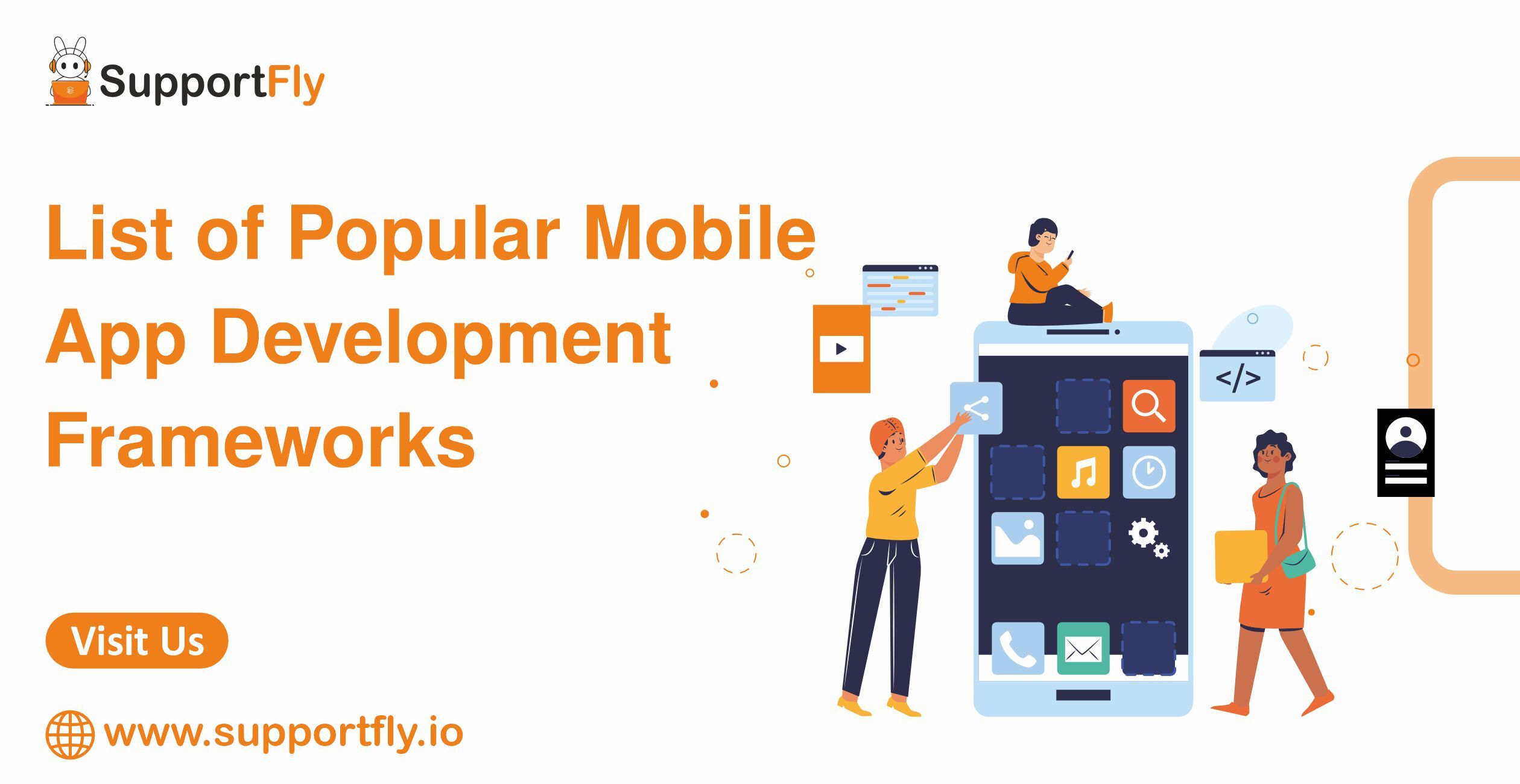oid We all know that mobile apps are a vital part of our daily lives, whether we want to make payments, play online games, or shop online. We just need a smartphone, and everything is at our fingertips. If you want to develop a mobile app and feel confused about the framework, don’t worry; this blog answers all your questions and queries.
What are mobile app development frameworks?
Frameworks for developing mobile applications are all-inclusive and contain all the necessary components, including the SDKs and the application’s main framework. These frameworks provide a toolkit that consists of crucial tools like programming interfaces, compilers, API tools, debugging utilities, code libraries, and prebuilt solutions, among others.
Types of mobile app development frameworks?
There are three types of frameworks:
1. Native Frameworks:
These frameworks are designed for platform-specific development, provide direct access to a device’s hardware, and offer the best performance but require separate coding for each platform (e.g. iOS and Android)
2. Mobile web frameworks:
Android apps are easily adaptable to different devices and screen sizes. Because native apps and web apps share many features and are responsive, it is easy to mistake the former for the latter in terms of functionality and responsiveness.
One of the major differences between the two is that native mobile apps can function both in online mode and offline mode without an active internet connection, whereas web apps require an active internet connection for them to work.
3. Hybrid App Framework:
A hybrid application combines elements of both web and native applications. Hybrid mobile app development involves embedding code written in web development languages such as HTML5, CSS, and JavaScript into a native wrapper using plugins such as Apache Cordova (Adobe PhoneGap) or Ionic’s Capacitor. Similar to native apps, hybrid apps can be downloaded from app stores. Hybrid apps run from inside a native app and own embedded browsers using WebKit, such as WebView for Android and WKWebView for iOS.
Popular mobile app development frameworks
1. Adobe PhoneGap: The PhoneGap framework for mobile app development allows users to see changes immediately. Additionally, it is a cross-platform framework for app development that supports HTML5, CSS, and Javascript. Because of this, it is among the top options for developers who want to create hybrid applications.
Adobe PhoneGap-developed apps guarantee excellent performance and let mobile app developers create apps without worrying about hardware constraints. In addition to the standard Android and iOS platforms, it is one of the mobile development frameworks that can create robust apps for operating systems like Windows, BlackBerry, Mac OS, Ubuntu, and Firefox. Additionally, developers can extend its functionality by adding plugins that are associated with this framework.
2. React Native: Native is a top-tier framework for developing mobile apps, competing with Xamarin and Native Scripts. It was created by Facebook and is utilized by Airbnb, Instagram, Tesla, Walmart, and numerous more Fortune 500 companies.
The React Native framework gets so much attention from both businesses as well as developers. It helps you build an app with great performance using the JavaScript framework, which has changed the scenario of the development world.
3. Flutter: The use of Skia, a 2D rendering engine, to produce graphics is what distinguishes Flutter app development.
These visuals are designed to look like Material Design and Cupertino-style widgets, but they are not. The framework makes it easy for developers to test without having to restart the project if an error occurs. Despite Google’s support, developers widely like Flutter for Android app development and also use it for iOS app development. You can create cross-platform iOS and Android apps with this framework that work on any device. It uses the programming language, Dart.
4. Ionic: Ionic is a front-end network that facilitates the use of HTML, CSS3, and Javascript to create mobile apps that mimic native apps. It provides the perfect environment for your app to launch successfully and perform optimally on the latest mobile devices.
5. JQuery Mobile: JQuery Mobile is a cross-platform development framework that is used to build mobile and web applications for various devices. The framework allows running a single code version across all devices. Furthermore, the HTML5-based development framework comes with various plugins such as Image Slider, Content-Slider, Pop-Up Boxes, etc. that help to create a feature-rich and interactive design.
6. Xamarin: One of Microsoft’s mobile development frameworks is called Xamarin. App developers can create Windows, iOS, and Android apps using Xamarin tools with the support of the C# codebase. These codes can be shared across multiple platforms, including Windows and Mac OS.
7. Mobile Angular AI: Mobile Angular UI is an open-source framework for developing mobile applications that combines the use of Angular and Bootstrap. The framework provides a range of UI components, including scrollable areas, navbars, sidebars, overlays, switches, and more, to give applications a strong and appealing user interface.
To create rich experiences, Mobile Angular UI also supports overthrow.js and fastclick.js. Additionally, Mobile Angular UI has cross-browser compatibility, which enables it to handle JavaScript code for every browser automatically.
Why is SupportFly the best app development company?
- Immense Experience and prowess in the domain With years of experience in the field,
- Ultra-Modern Technologies We use the latest technologies and tools to develop state-of-the-art Android applications.
- First-Rate Apps Without any Bugs Quality is our top priority.
- Swifter Development Our agile development process and efficient workflows enable us to deliver high-quality apps faster without compromising on quality.
- Flexible Application We design our apps to be flexible and scalable, ensuring they meet the evolving needs of your business.
- Reasonable Pricing Our pricing is competitive and transparent, ensuring you get the best return on your investment.
-
-
Conclusion
Read our another blog
